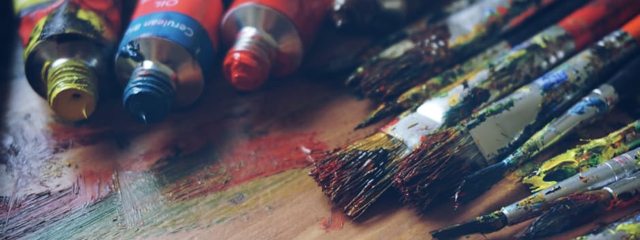We all know sometimes words just aren’t enough. Even more, sometimes words are the most difficult aspect of an addict’s life. Having to formulate complex ideas and sharing those with others can bring anxiety and frustration. This is where art therapy comes in. Addressing the needs of the whole person, art therapy allows a recovering addict to express their feelings and thoughts that could get trapped in the process of speaking-based therapies.
With art therapy, those in recovery use their creativity and imagination to create art that expresses what they truly feel in a healthy and productive way. Since creating art is often a nonverbal process, it can expand the ways newly recovering addicts can convey their ideas and emotions. It provides an opportunity to explore, understand, and resolve issues in a person’s life that he or she may not feel comfortable talking about in normal conversation. Having another way to convey the most visceral of emotions will give the addict a greater sense of self-confidence and esteem.
What Does It Look Like?
There are a variety of art forms that can be used in art therapy, including painting, sculpting, music, dancing, drawing, poetry, and more. But it is always more than simply practicing an artistic discipline. The goal is to help individuals understand and express themselves in ways they never thought possible.
A valid program will be led by an experienced and credentialed therapist. Even though there is a good deal of freedom for clients to delve deeply in their own hearts, this is far from being a time to splash paint on a page. Art therapy is guided with specific goals and evaluations for each individual. Though programs may vary, here are the basics of what we offer at First Steps:
First, self-exploration is encouraged.
Therapists guide clients in working out their current feelings and experiences through the chosen artistic medium in order to initiate deeper conversations.
Second, the imagination is engaged.
The imagination is a powerful tool in recovery. More than dealing with limiting aspects of typical spoken therapy, art therapists encourage clients to actively engage their imagination either in the creation of their own art or interpreting the deeper meanings of existing artwork.
Third, art is created.
Individuals will walk away with a powerful artistic expression of their personal journey. With assistance from the therapist, clients express their innermost feelings through their work and are finally able to give those feelings a voice and are then able to work through them and have something that they created to take home and remind them of the healing they have experienced.
Dig Deeper
The ultimate goal of a First Steps art therapy program is for the person to expand his or her forms of communication in order to better convey what they truly feel and experience. Art therapy programs for addiction are especially helpful for those people who have underlying psychological issues related to their addiction, such as a history of abuse.
When you are looking to free yourself from the bonds of addiction, you want to use every tool possible to achieve that goal. To help you dig deeper into the roots of your addiction, First Steps Recovery’s art therapy program will help you work through those emotions and experiences that define your addiction. If you or a loved one has been considering art therapy as part of your addiction treatment and recovery plan, call First Steps Recovery right now: 1-844-489-0836.




